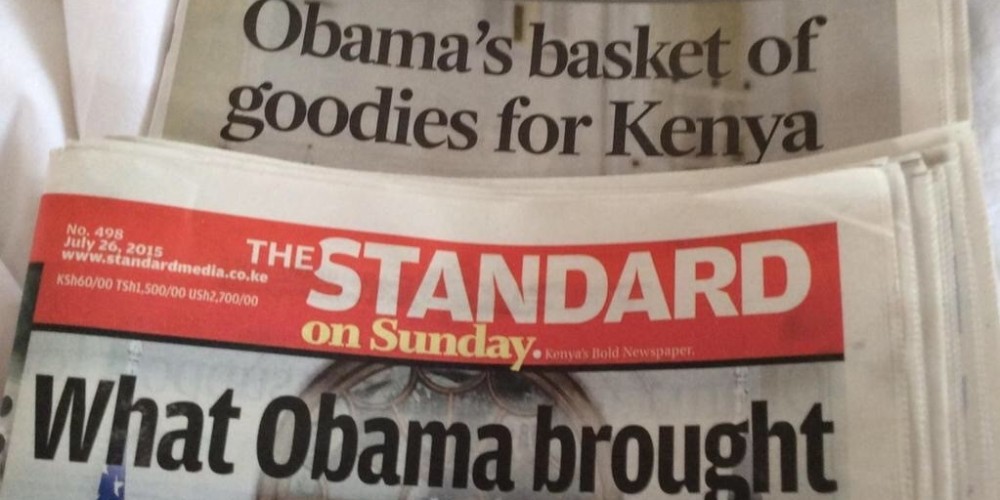Three observations from #ObamaInKenya

The visit to Kenya last weekend by US president Barack Obama brought us to a standstill, watching every bit of the ride: planes, helicopters, automobiles, protocols, speeches and all. Allow me to make three simple observations.
First, Kenya received publicity that we simply could not have bought. This was pure gold. We were in the global spotlight – and for a change, it was for all the right reasons. Instead of airing our poverty and our conflicts and our disasters, we showcased our innovators and entrepreneurs. We showed that we are a destination for capital and a place to set up business. We showed that Kenya is not a single story – it is a multiplicity of narratives, and many of them are celebratory.
For the US president to be strolling around these streets chatting with young innovators and talking about business and investment was a sublime occurrence. For the world’s great business leaders to assemble here in Nairobi for a global summit on entrepreneurship was magical. And for our many business success stories to get such an international airing – well, you can’t buy that.
I really hope our leaders understood the single most powerful message of this visit: you don’t get great publicity by paying to say you’re good; you get great publicity by being good. Some moments of hypocrisy aside, what was on display last weekend was not fake PR, not a smoke-and-mirrors manufactured reality; no, what we showed is what is real: that we are indeed a place ready to do business on the global stage; that we are a place teeming with fresh-faced youngsters with fresh ideas; and that we already have game-changing business successes under our belts.
A second observation. Our president, Uhuru Kenyatta, was in the unenviable position of having to stand next to one of the world’s most renowned orators. On top of that he had to bow in the face of the security-and-protocol machine of the world’s most powerful nation. Pretty much every leader in the world would have wilted under that pressure.
President Uhuru, let us say, stood tall. He spoke shoulder-to-shoulder to Barack Obama and held his own; he deployed the correct mix of humour and humility; he played the host with aplomb; and he held his own in the glare of world media.
Watching the two presidents together, two moments stood out: one was to see them sitting on stage at GES 2015 – in dialogue not with moneyed old men, but with young innovators. If anything highlighted where the future of Africa lies it was that: it is not in adoring the Big People; but in connecting the Little People in fresh and creative ways. The second moment was the the much-anticipated disagreement on gay rights. Each president stated his case clearly; neither conceded ground; and yet, there was no fight. They ended that press conference arm-in-arm. Kenyans, used to name-calling and insult-hurling, were shown a different way of differing: the gentleman’s disagreement.
My final observation is about the schedule of the US president. Have you ever seen so much activity packed into a mere 48 hours? He opened a global summit, chatted with innovators and examined their products; paid his respects to victims of terrorism; led his country’s bilateral talks with Kenya; conducted a joint press conference; had deep discussions with members of civil society; delivered a landmark stadium address; met leaders of the political opposition; gave a TV interview – and managed to meet and host his extended family as well as dance “lipala.” And then, after we said goodbye to him and fell back exhausted – he landed in Ethiopia to do it all all over again, and found time for a speech to AU leaders that rocked the rafters.
Applause. Such energy can only come from clarity of purpose and deeply held values. Few of his own predecessors as POTUS would have pulled off that schedule, or even wanted to. The lesson for all of us? When a man on a mission is pushing, mountains can indeed be moved, the concept of time can be reshaped, and fatigue becomes a minor inconvenience.
What now for Kenya, though? Has anything changed? More on that next week.

Buy Sunny Bindra's book
UP & AHEAD
here »















